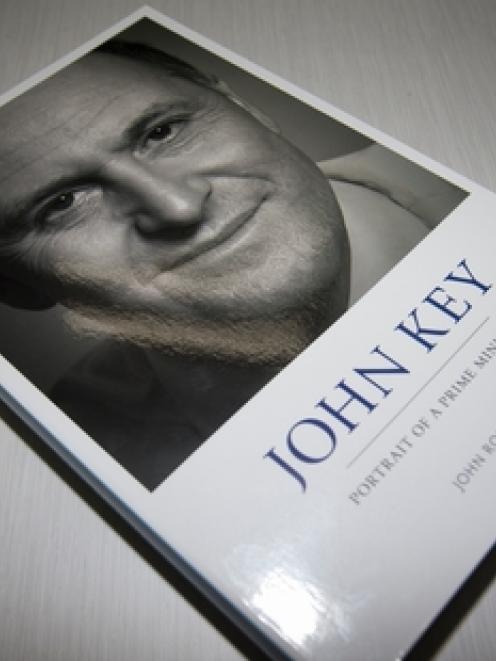
"In the end if the individual who told me wants to tell the police they are welcome to do that," Mr Key said at a media conference today.
He said he had learned from the Teapot Tapes scandal in 2011.
"I could spend my life worrying about people who undertake activities to try to discredit the government but at the end of the day it doesn't take you anywhere."
Asked whether he thought the police should be focused on investigating potential identities of Rawshark rather than investigating journalist behind the "Dirty Politics" book, Nicky Hager, Mr Key said: "That's a matter for them... they run their own inquiries."
In a new chapter in John Key: Portrait of a Prime Minister devoted to this year's election campaign, Mr Key is quoted as saying: "Someone phoned and told me who the hacker was, but other than having a look at this person, I thought, 'Oh well ... nothing will come of it. Life goes on'."
Mr Key did not divulge the name of the person to the biography's author, senior Herald editorial writer John Roughan. Asked yesterday whether the PM had referred the name to the police investigation into the stolen emails, a spokeswoman for Mr Key said that though he believed he knew who the hacker was, "he cannot be certain".
The spokeswoman said the PM had had no involvement in the police inquiry, which has included a lengthy search of Hager's Wellington home.
The new chapter has National's campaign manager, senior Cabinet minister Steven Joyce, admitting that Jason Ede, a central figure in Hager's book, had done "quite a lot on the attack side" when it was necessary to highlight that what political opponents were saying was wrong.
Mr Key, in contrast, describes Mr Ede's role as defensive.
"He didn't sit there running an operation with bloggers but he did talk to them. More often than not it was defensive.
"Labour would run an attack story -- they'd come across a picture of me at a function with some Asian individual who had done something wrong -- and Jason would go looking for a picture of the Labour leader standing next to him to provide a bit of balance. It was largely a defensive role."
The book quotes Mr Joyce as saying Mr Ede stopped working for the National Party on the evening Dirty Politics was released at Wellington's Unity Books -- more than five weeks before the election.
That conflicts with a National Party statement released after the election which stated Mr Ede had resigned the day before the election.
Roughan writes that the media's unrelenting focus on Dirty Politics prompted National's campaign strategists to decide to ignore the drip-feeding of fresh material by "Rawshark", the anonymous person who hacked into Slater's computer.
Mr Joyce says National had no control over the drip-feeding or over Slater's reaction, "which was probably as big a problem".
"We decided to just run straight through the middle and try to show the public we were concentrating on what they were interested in, which we were fairly confident was not this stuff."
In contrast to his confrontation with the media during the 2011 election after the Epsom cup of tea with Act's John Banks, Mr Key decided he would continue to answer all of the media's constantly repeated questions on the contents of Dirty Politics .
"I thought, 'I'm not going to give him [Hager] the satisfaction of walking out of anything, not going to back away. I'm just going to talk to them [the media] every day."
The new chapter also reveals that National pondered whether to help Colin Craig's Conservatives to get over the 5 per cent threshold to give National an alternative partner in any governing coalition to Winston Peters' NZ First.
But Mr Joyce and the strategists could see no way to control how many supporters might vote Conservative if given the signal. National could have dropped five or six percentage points.
By John Armstrong












